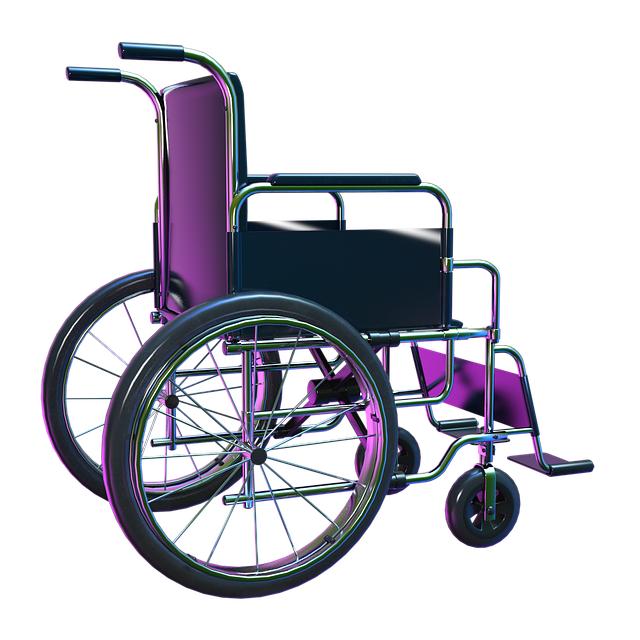In the golden years of life, the pursuit of health and well-being becomes not just a priority, but a cherished journey. As the chapters of our lives unfold, the importance of understanding and advocating for our healthcare rights becomes paramount. Yet, navigating the complex world of healthcare can often feel like deciphering a foreign language. For seniors, this journey can be especially daunting, as the landscape is ever-evolving, dotted with new policies, technologies, and terminologies.
In this article, “,” we embark on a compassionate exploration designed to empower and enlighten. Our goal is to illuminate the pathways of healthcare rights, ensuring that every senior is equipped with the knowledge to make informed decisions, stand firm in their dignity, and embrace the care they deserve. Whether it’s understanding the nuances of consent, accessing necessary treatments, or navigating insurance intricacies, this guide serves as a beacon of clarity and support. Join us as we unravel the essentials of healthcare rights, fostering a sense of confidence and peace of mind for every senior on this journey of life. Medicare with Confidence”>
Medicare with Confidence”>
Navigating Medicare with Confidence
Understanding your rights as a senior within the healthcare system can empower you to make informed decisions and advocate for yourself effectively. Medicare, while a critical resource, can often seem overwhelming. However, by familiarizing yourself with your entitlements, you can confidently navigate your healthcare journey.
- Access to Information: You have the right to receive clear and understandable information about your coverage options. Don’t hesitate to ask for explanations or seek out resources to help decode the complexities.
- Choice of Providers: You are entitled to choose healthcare providers and facilities within the Medicare network, allowing you to select professionals who align with your health needs and personal values.
- Quality Care: Every senior deserves high-quality care. If you feel your needs are not being met, it is your right to voice your concerns and seek second opinions if necessary.
Remember, these rights are designed to protect and empower you. Utilize them to ensure your healthcare experience is both positive and personalized.

Empowering Your Voice in Medical Decisions
In the journey of healthcare, understanding your rights is akin to holding a compass in uncharted waters. Every senior has the right to actively participate in their medical decisions, ensuring that their voice resonates within the walls of every consultation room. This is not merely a privilege but a fundamental aspect of receiving dignified and respectful care.
As you navigate your healthcare path, remember these key points to assert your voice:
- Informed Consent: You have the right to receive clear and comprehensive information about your diagnosis and treatment options, empowering you to make informed decisions.
- Second Opinions: If ever in doubt, seeking a second opinion is not only your right but a wise choice to ensure your comfort and confidence in the proposed medical plan.
- Advance Directives: Establishing a living will or healthcare proxy can safeguard your wishes, ensuring your voice is heard even when you may not be able to speak for yourself.
- Access to Records: You are entitled to access your medical records, allowing you to stay informed and engaged in your healthcare journey.
By embracing these rights, you reinforce your role as an active participant in your healthcare, nurturing a partnership with your medical team built on mutual respect and understanding.
Understanding Long-Term Care Options
As seniors and their families navigate the complex landscape of long-term care, it’s crucial to understand the diverse options available to ensure both comfort and dignity. Long-term care can range from in-home assistance to full-time residential facilities, each offering unique benefits and challenges. The key is to find a solution that aligns with personal needs, preferences, and financial circumstances. Consider the following options:
- Home Care Services: Ideal for those who value independence, home care provides assistance with daily activities while allowing seniors to remain in their own homes.
- Assisted Living Facilities: These communities offer a blend of independence and support, with personal care services and social activities.
- Nursing Homes: Designed for those needing round-the-clock medical care, nursing homes provide comprehensive services under the supervision of healthcare professionals.
- Adult Day Care Centers: Perfect for caregivers needing respite, these centers offer daytime care and activities for seniors.
It’s important to approach this decision with empathy and thorough research, ensuring that the chosen care option honors the senior’s lifestyle and health requirements.
Safeguarding Your Health Information Rights
As we age, it becomes increasingly important to understand how our personal health information is handled. You have the right to access your medical records—a powerful tool in managing your healthcare journey. This means you can request copies of your medical history, test results, and any other documentation related to your care. Knowing what information is held and how it is used allows you to make informed decisions and ensures transparency in your interactions with healthcare providers.
Additionally, you have the right to privacy and confidentiality. Your health information is protected under laws like the Health Insurance Portability and Accountability Act (HIPAA) in the United States, which mandates that your medical information can only be shared with your consent or for essential purposes. Here are some key points to remember:
- Request corrections: If you find any inaccuracies in your records, you have the right to request amendments.
- Know who sees your information: You can ask for a list of disclosures to see who has accessed your records.
- File a complaint: If you believe your rights have been violated, you can file a complaint with your healthcare provider or directly with the Office for Civil Rights.
Understanding these rights empowers you to safeguard your health information, ensuring that your privacy and dignity are respected at every step of your healthcare experience.


